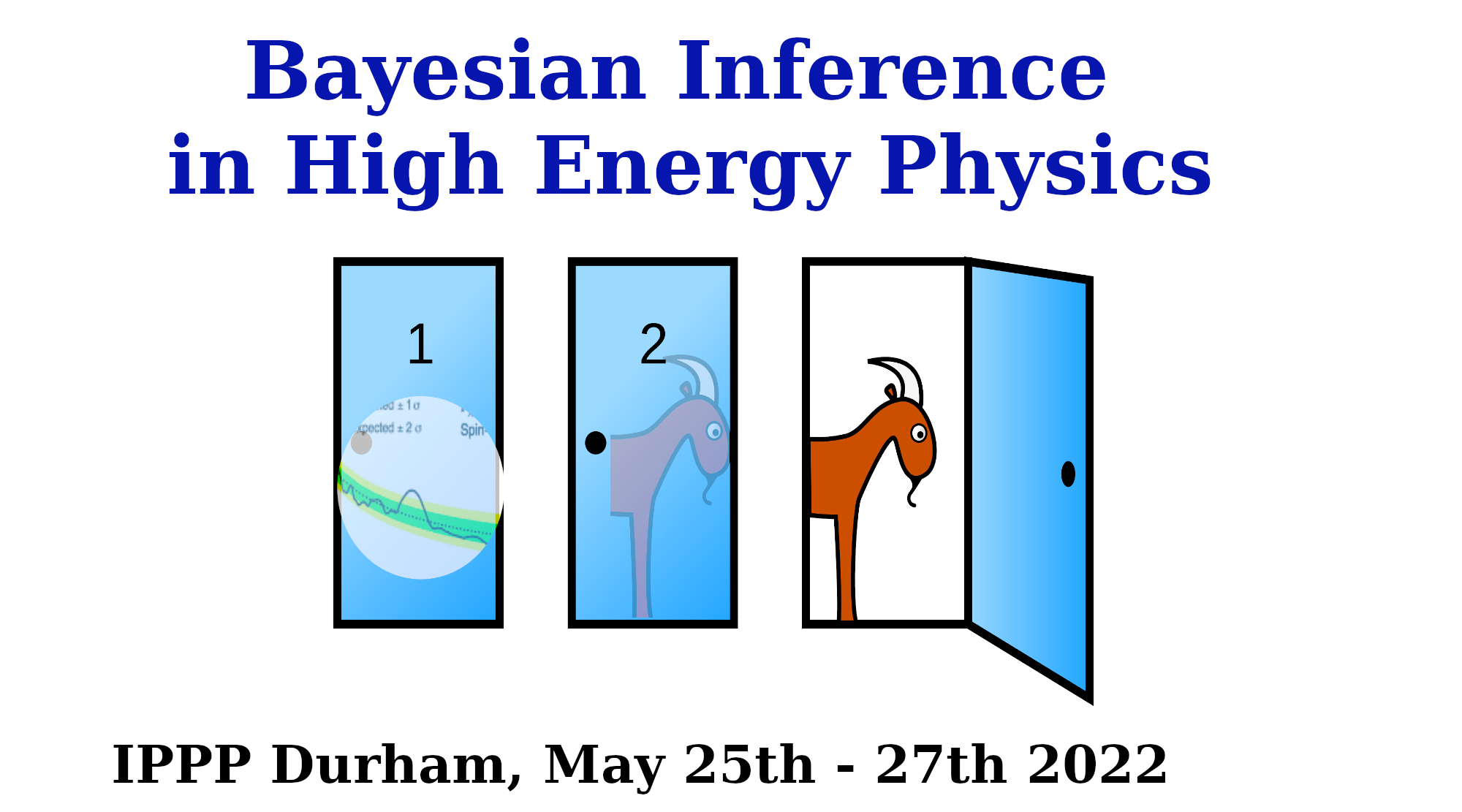Bayesian Inference in High-Energy Physics
OC218
IPPP

Bayesian inference methods consist in finding out probability distribution over unknowns given some observations and some knowledge of the model that connects them. These techniques not only look very suitable for inquiring Nature in High-Energy Physics, but also they have been highly boosted and developed in the last decades through a broad spectrum of Machine Learning applications. Our challenge is to reach the state-of-the-art of these techniques within High-Energy Physics applications to study their scope in better understanding non-perturbative phenomena, improving Monte Carlo techniques, improving experimental setups, modelling and eventually finding New Physics, and many other LHC-related disciplines, as well as other HEP areas.
The workshop consists in mainly three aspects, on which we aim to trigger discussions that construct connecting and developing bridges. From one side, the known and in-research HEP cases, in theory, phenomenology and experiment, in which inference methods provide relevant results. From another side, how Monte Carlo simulations could be assisted through Bayesian methods. And from the final side, we want to discuss with Computer Science specialists who foster the latest developments and tools on how these can be best used in HEP.
The workshop is in-person at the Durham IPPP (UK) and we aim to have ~25 participants. Sessions will mix talks, coffee, and discussion slots. If you are interested in attending the workshop please apply by registering here.
Follow us on twitter @IPPP_Durham
